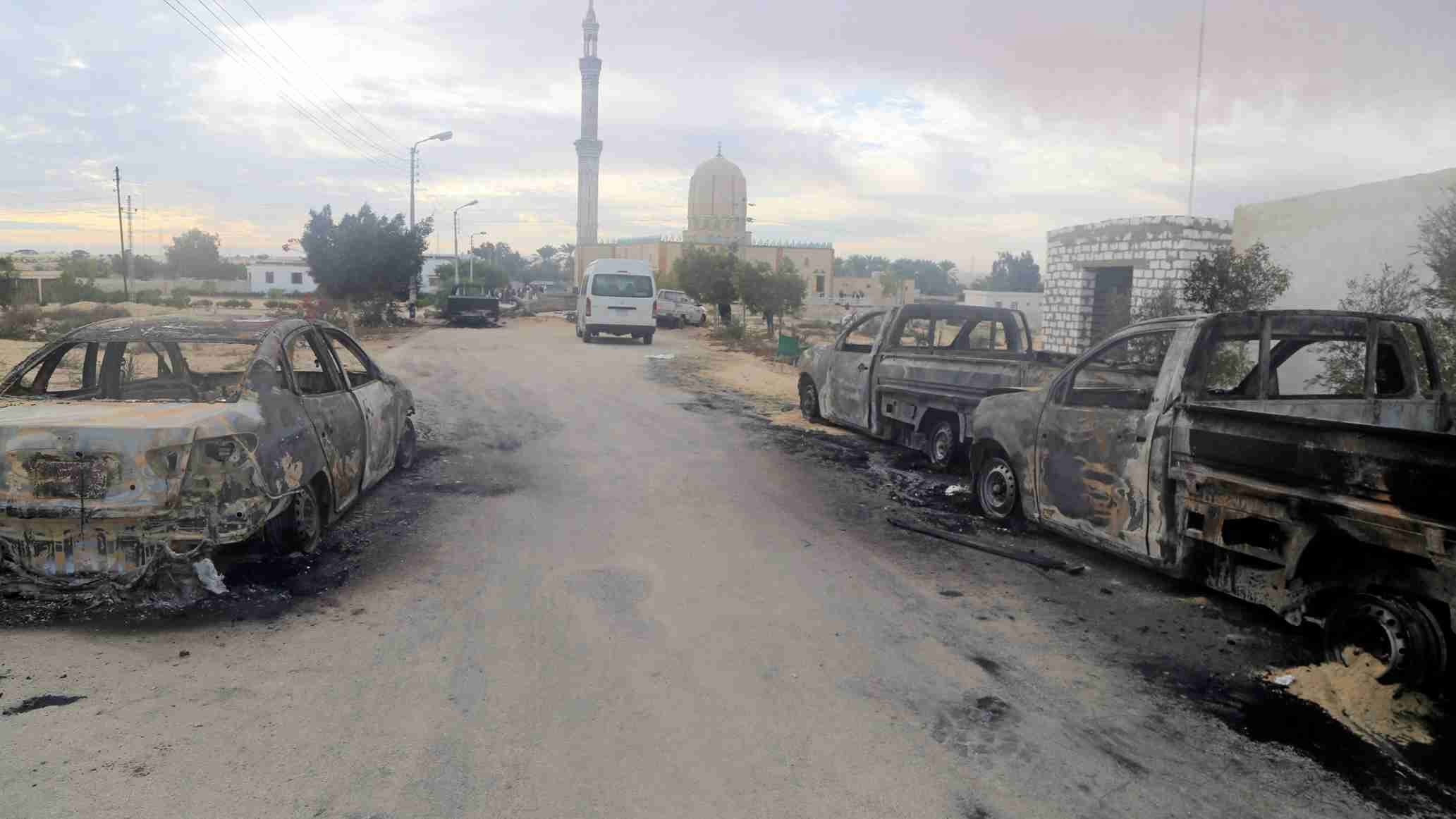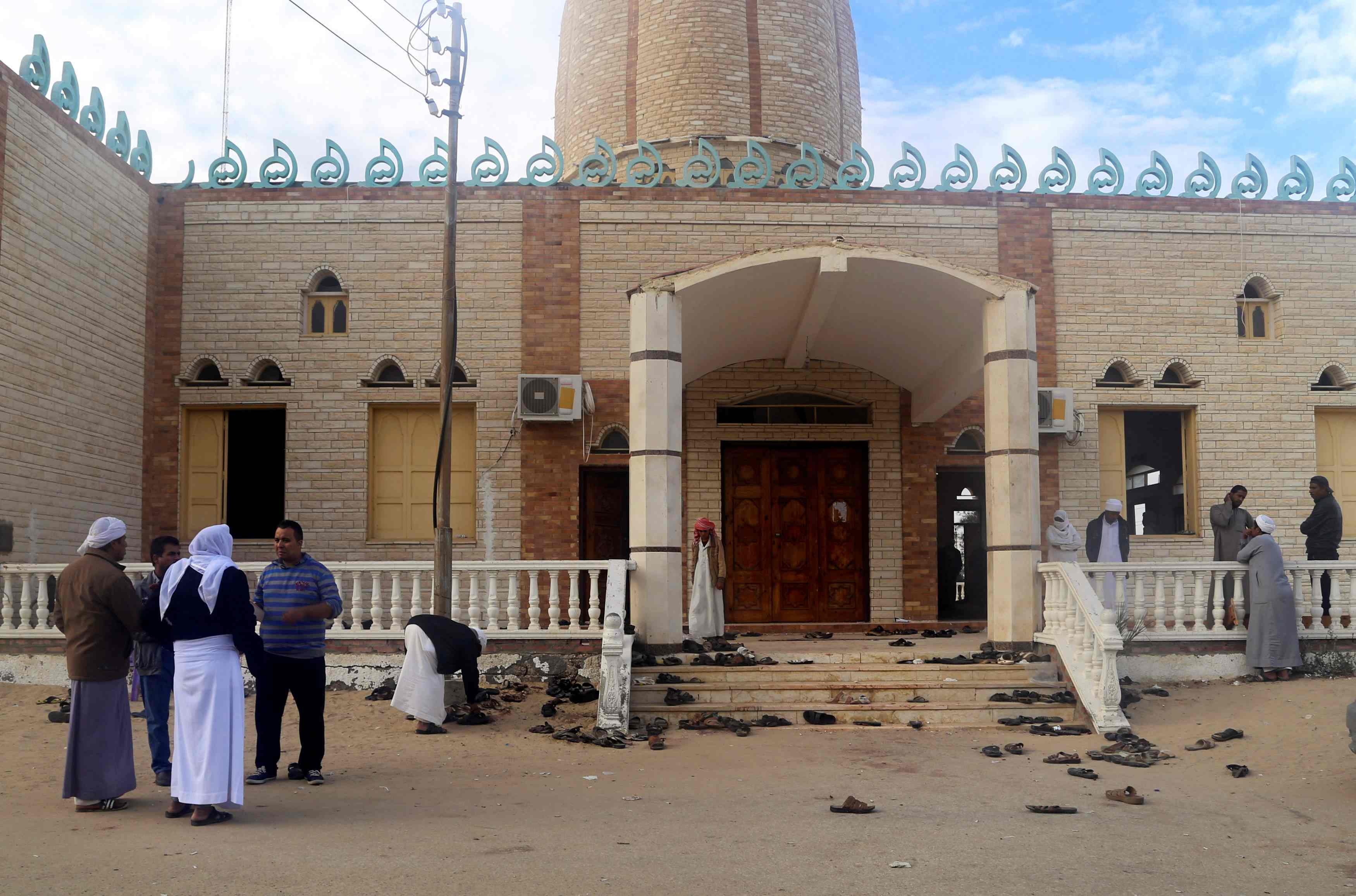
Opinions
21:30, 25-Nov-2017
Opinion: A long, hard fight – Egypt’s war against terrorism in Sinai
Guest commentary by Wang Jin

The terrorist attack in Egypt on Friday shocked the whole world. At least 305 people were killed in a terrorist bomb attack shortly after Friday prayers at a mosque in Bir al-Abed, a town in North Sinai province. Although no group has claimed responsibility for the attack, the local branch of the Islamic State of Iraq and the Levant (ISIL) – Wilayat Sinai, or the "ISIL Sinai Branch" – is widely viewed as being behind it.
The mosque in Bir al-Abed becoming the target of a terrorist attack is by no means accidental. On the one hand, al-Rawdah mosque belongs to the Sufi order. In the eyes of Islamic extremist groups such as ISIL, Sufism is an "invalid" sect in Islam, and its worshipers are perceived as apostates because their habit of revering saints is not part of the original practice of Islam during the time of Prophet Mohammed. On the other hand, unlike other mosques located in heavily guarded cities such as Sheikh Zuweid in North Sinai, the Bir al-Abed region was a relatively easy target for Islamic extremists because it was outside the major cities in Sinai Peninsula.

People stand outside al-Rawdah mosque, where a bomb exploded, in Bir Al-Abed, Egypt, November 25, 2017. /Reuters Photo
People stand outside al-Rawdah mosque, where a bomb exploded, in Bir Al-Abed, Egypt, November 25, 2017. /Reuters Photo
Egypt has been fighting Islamic extremism in the rugged and thinly populated Sinai Peninsula for more than a decade. Islamic extremist groups have operated in Sinai since 2004, but the most dangerous and threatening extremist group in the province today is Wilayat Sinai, a group which once went under the name "Sinai’s Ansar Beit al-Maqdis" or "Supporters of Jerusalem", before it declared allegiance to ISIL in November 2014.
Wilayat Sinai has killed hundreds of Egyptian security personnel, and was also responsible for attacks on civilians. The group claimed responsibility for bringing down a Russian passenger aircraft bound to Saint Petersburg in October 2015.
In its January 2017 annual report, the Global Terrorism Index named Egypt one of the ten most terrorism-struck countries in the world, placing it ahead of Libya, Ukraine, and Turkey.
As a region culturally and geographically separated from the Egyptian "mainland", Sinai was occupied by Israel from 1967 to 1979. The separation and "occupation" history left many Egyptians suspicious of pro-Israeli sympathizers within the native population in Sinai, and led to a ban on their recruitment by Egypt’s military or security services.
Excluding local people from security forces left the Egyptian security forces operating without detailed knowledge of the terrain, tribes and individuals – a knowledge necessary to the success of counter-terrorism and counter-smuggling operations.

Egyptian President Abdel Fattah Al Sisi is seen during a meeting with government members to discuss the attack in North Sinai, in Cairo, Egypt, November 24, 2017. /Reuters Photo
Egyptian President Abdel Fattah Al Sisi is seen during a meeting with government members to discuss the attack in North Sinai, in Cairo, Egypt, November 24, 2017. /Reuters Photo
Meanwhile, with the local economy struggling due to neglect and insecurity, many young people in Sinai have turned to smuggling, a traditional occupation in the region. Against this backdrop, Islamic extremism that called for "rebellion" and "Islamic revolution" has become more and more attractive for the young people of Sinai.
Although the support for Wilayat Sinai or other Islamic extremist groups is far from universal for the tribes of Sinai, the distaste for Egypt’s security forces and the campaign of brutal intimidation is widespread within the native population.
After every "terrorism incident" in Sinai, there would be a wave of “instantaneous purge” of militants in Sinai. The "instantaneous purge" usually stabilizes the regional situation in a short-term fashion, but fails to terminate an insurgency that has intensified instead of waning.
Egyptian security forces have failed to connect with an alienated local population in Sinai. Arbitrary mass arrests and imprisonments have degraded the relationship between tribal groups and state security services.
To "eliminate" the Sinai insurgents, Egyptian security forces should trust the Sinai tribes. Meanwhile, Egypt must complement this move with unwavering steps of economic development in the Sinai Peninsula, while providing for the needs of the local population there who has suffered from many years of neglect and exclusion.
There is still a long and hard fight ahead before terrorists are "eliminated" in Sinai.
(Wang Jin is a PhD candidate at the School of Political Science of University Haifa and a research fellow at Syria Research Center of Northwest University. The article reflects the author’s opinion, not necessarily the views of CGTN.)

SITEMAP
Copyright © 2018 CGTN. Beijing ICP prepared NO.16065310-3
Copyright © 2018 CGTN. Beijing ICP prepared NO.16065310-3